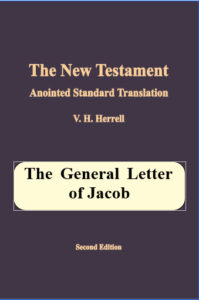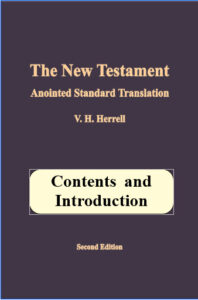The General Letter of Jacob1
Jacob was written c. 47-48 AD
CHAPTER 1
1.1 Introduction
1) Jacob, a slave of God and of the Master Jesus the Anointed, to the twelve tribes in the dispersion, greetings:
1.2 Trials and Temptation
2) Count it all as joy, my brothers, when you fall into various temptations,
3) knowing that the proving of your persuasion works patience,
4) and let patience have its perfect work, that you may be perfect and complete, having lacked in nothing.
5) But if any of you lack wisdom, let him ask from God Who gives to all in racial purity and Who is not dishonourable, and it will be given to him.
6) But let him ask in persuasion, doubting nothing, for the one doubting is like a wave of the sea, being driven and tossed by wind.
7) For let not that man be ‡{Gr. ѱυхή See Appendix 9}persuaded that he will receive anything from the Master —
8) he is a man with two lives and undependable in all of his ways.
9) But let the humble brother boast in his height;
10) and the rich in his humiliation, because he will pass away as the flower of grass.
11) For the sun rose with hot wind and dried the grass, and its flower fell out, and the beauty of its appearance perished; so also the rich one in his ways will fade away.

